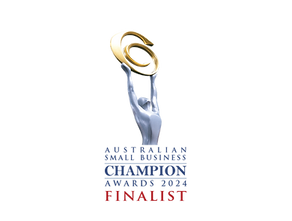Fitness Tracking for Mums
- Emma Bunting

- Jul 15, 2024
- 3 min read
Fitness Tracking for Mums Returning to Exercise
Many mums start their return to exercise journey seeking not just physical strength but also community and mental health support. The idea of tracking progress via fitness testing can initially feel quite daunting for anyone returning to exercise, especially new Mums. However, it can can be used as a benchmark and a motivational tool. Fitness testing allows mums to clearly gauge their starting point and celebrate their progress throughout the term, all while keeping their postpartum considerations (pelvic floor etc) in mind.

How do you do Fitness Testing for Mums?
Many MumSafe Coaches will offer fitness testing at the beginning and end of each Term (a Term is around 10 weeks). This offers a clear starting point, enough time for alterations and progressions and a reflection point at the end. This is an example of progressions using a pressing movement:
Start – standing press with a light resistance band
Progress 1 – standing press with a medium resistance band
Progress 2 – incline press-up
Progress 3 – floor press-up (without wrist pain or doming in anterior core)
However, not all testing can be an exact reflection of strength and fitness. Mums are a specialist population who need to take into consideration their unique circumstances. Factors that can impede upon fitness progressions include but are not limited to:
birth recovery
sleep (lack of!)
stress and mental health
nutrition and hydration
breast-feeding
Fitness testing isn’t a one-size-fits-all situation. It needs to be tailored to meet each woman’s specific needs and limitations.
Key considerations for Mums
Postpartum women, navigate challenges that require careful consideration for the five key contraindications. These are pain and pressure points common in women who have carried and birthed babies. The fitness testing is only ever a guide and your MumSafe Coach will always ensure all exercises and the progressions, are both effective and safe.
Pelvic Floor Dysfunction. Fitness testing might focus on exercises like pelvic floor activations and/or modified squats. Progress is measured in pelvic stability and control over time.
Wrist Pain. Fitness testing needs to include alternatives like resistance bands or modified push-ups that reduce strain on the wrists. No creases in the wrists will help to help prevent wrist pain.
Pelvic Pain. Testing for mums with pelvic pain may mean gentle movements to improve mobility and stability, such as pelvic tilts or controlled stretches, ensuring progress without aggravation. Progress is to see improvement in movement without pain and working towards single leg work.
Abdominal Separation (Diastasis Recti). Awareness around doming is key along with modifying a movement to ensure that abdominal control is present.
Knee Pain. Modifications in fitness testing for knee pain might involve altering the position of the squat, holding a wall sit or progressing to knee-friendly strength exercises such as leg raises or bridges.
Fitness Testing for Mums is a journey
At MumSafe we honour each Mum’s unique birth experience and postpartum journey. Our Fitness Testing is versatile and fluid. Progress is measured not just in physical achievements but also in confidence, health and well-being.
The benefit of tailored fitness testing is the ability to adapt, evolve, and celebrate every small win along the way. Whether it’s mastering a new exercise without pain or keeping core control or improving a personal best, I believe all mums should be educated and supported and encouraged to achieving their goals safely and effectively.
Beyond the numbers and metrics, fitness testing and progress tracking for mums are not just about reaching fitness goals, it’s about supporting and encouraging Mum’s to have consistent exercise. As each term begins and ends, these fitness tests are a reminder of progress and consistent exercise.





Comments